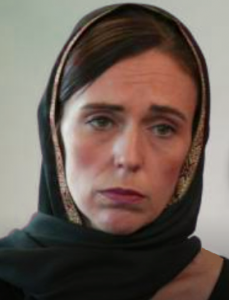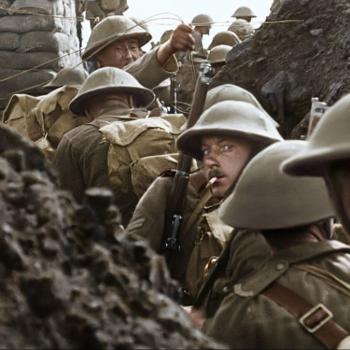The United States stands almost alone in the world with its one-sided approach to the Israeli-Palestinian conflict. Part of the problem is that while attacks by Islamic terrorists get full media play, attacks by Jewish terrorists and agents of the Israeli defense forces against Palestinians are routinely downplayed. Few pay attention to the daily indignities suffered by the Palestinian population when the pass through the ubiqitous checkpoints that litter than land. I heard a talk recently from a person working with a Catholic group in the Holy Land, a prominant cleric. He said he saw the same story over and over again with young American volunteers. When they arrive, there are pro-Israel, because they don’t know any better. After a few months living among the Palestinians, they become ferociously anti-Israel. It would be nice if both sides of the story could be told.
Anyway, this post was inspired by a heart-breaking account of a recent Jewish terrorist attack on Palestinian homes in Hebron. Remember, Hebron is a bustling west bank city, which a tiny group of extremists Jewish settlers living in its midst. It was this group that inspired Baruch Goldstein, the American terrorist who opened fire into a mosque in 1994. The settler community has always been dominated by an extremist and uncompromising zionist ideology, and yet has always been coddled by an Israeli establishment that still supports the expansion of settlements, while the United States turns a blind eye (and has done since the Reagan administration). Recently, tensions arose in Hebron once more, this time over disputed property, prompting the intervention of the defense forces. The settlers rioted and started attacking Palestinians. Here is an eyewitness report from a Haaretz reporter:
“An innocent Palestinian family, numbering close to 20 people. All of them women and children, save for three men. Surrounding them are a few dozen masked Jews seeking to lynch them. A pogrom. This isn’t a play on words or a double meaning. It is a pogrom in the worst sense of the word. First the masked men set fire to their laundry in the front yard and then they tried to set fire to one of the rooms in the house. The women cry for help, “Allahu Akhbar.” Yet the neighbors are too scared to approach the house, frightened of the security guards from Kiryat Arba who have sealed off the home and who are cursing the journalists who wish to document the events unfolding there.
The cries rain down, much like the hail of stones the masked men hurled at the Abu Sa’afan family in the house. A few seconds tick by before a group of journalists, long accustomed to witnessing these difficult moments, decide not to stand on the sidelines. They break into the home and save the lives of the people inside. The brain requires a minute or two to digest what is taking place. Women and children crying bitterly, their faces giving off an expression of horror, sensing their imminent deaths, begging the journalists to save their lives. Stones land on the roof of the home, the windows and the doors. Flames engulf the southern entrance to the home. The front yard is littered with stones thrown by the masked men. The windows are shattered and the children are frightened. All around, as if they were watching a rock concert, are hundreds of Jewish witnesses, observing the events with great interest, even offering suggestions to the Jewish wayward youth as to the most effective way to harm the family. And the police are not to be seen. Nor is the army…
A group of journalists approach the house. A dilemma. What to do? There are no security forces in the vicinity and now the Jewish troublemakers decided to put the journalists in their crosshairs. We call for the security guards from Kiryat Arba to intervene and put a halt to the lynch. But they surround the home to prevent the arrival of “Palestinian aid.”
The home is destroyed and the fear is palpable on the faces of the children. One of the women, Jihad, is sprawled on the floor, half-unconscious. The son, who is gripping a large stick, prepares for the moment he will be forced to face the rioters. Tahana, one of the daughters, refuses to calm down. “Look at what they did to the house, look.”
Again, it would be nice in the US media treated such topics seriously. It would be nice if it devoted the same attention to the enormous hardship created by the collective punishment of the Palestian residents of Gaza, in the form of an Israeli blockade, as it did to Hamas attacks. After all, we cannot have peace without justice– and that means on both sides.












